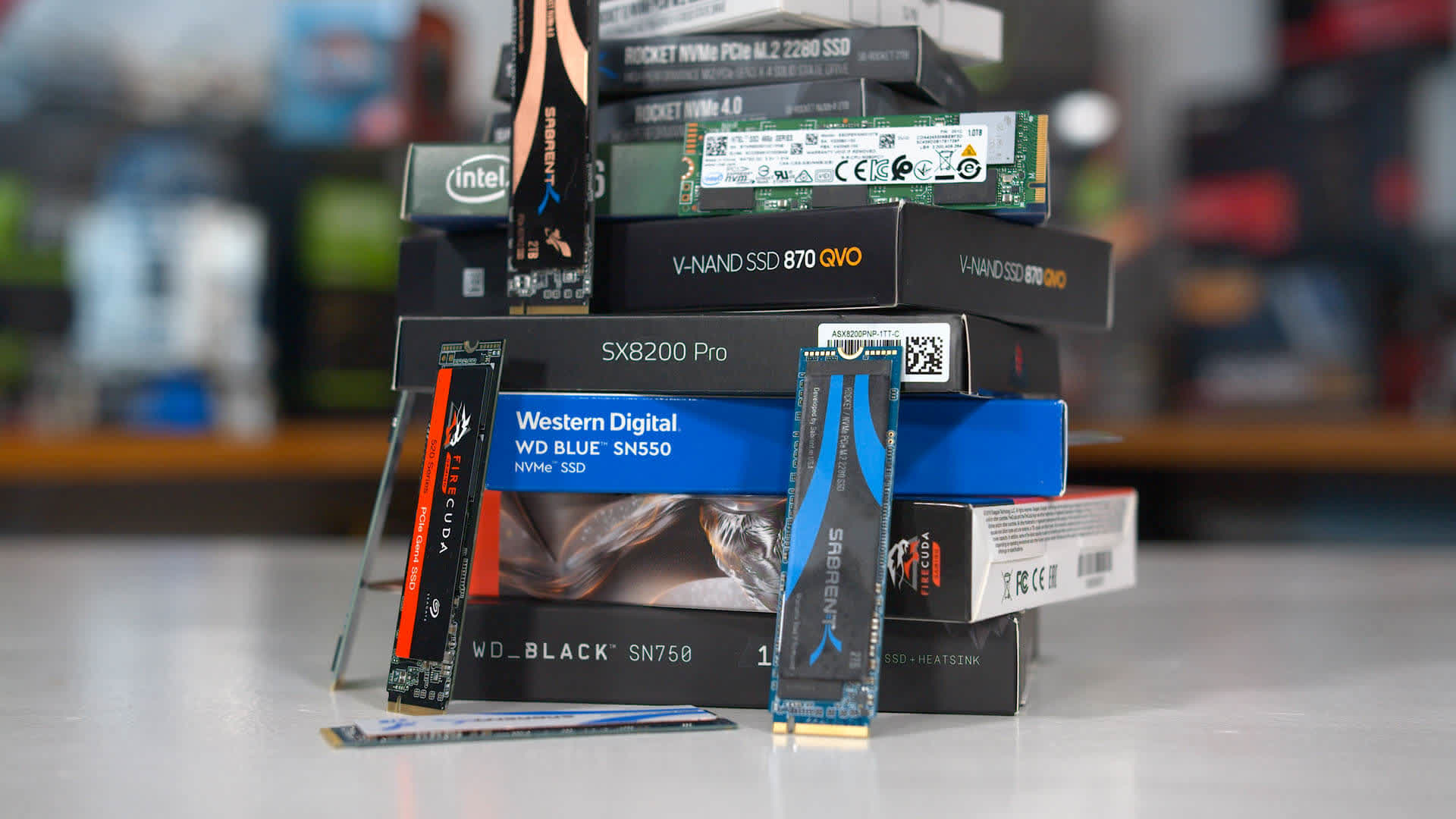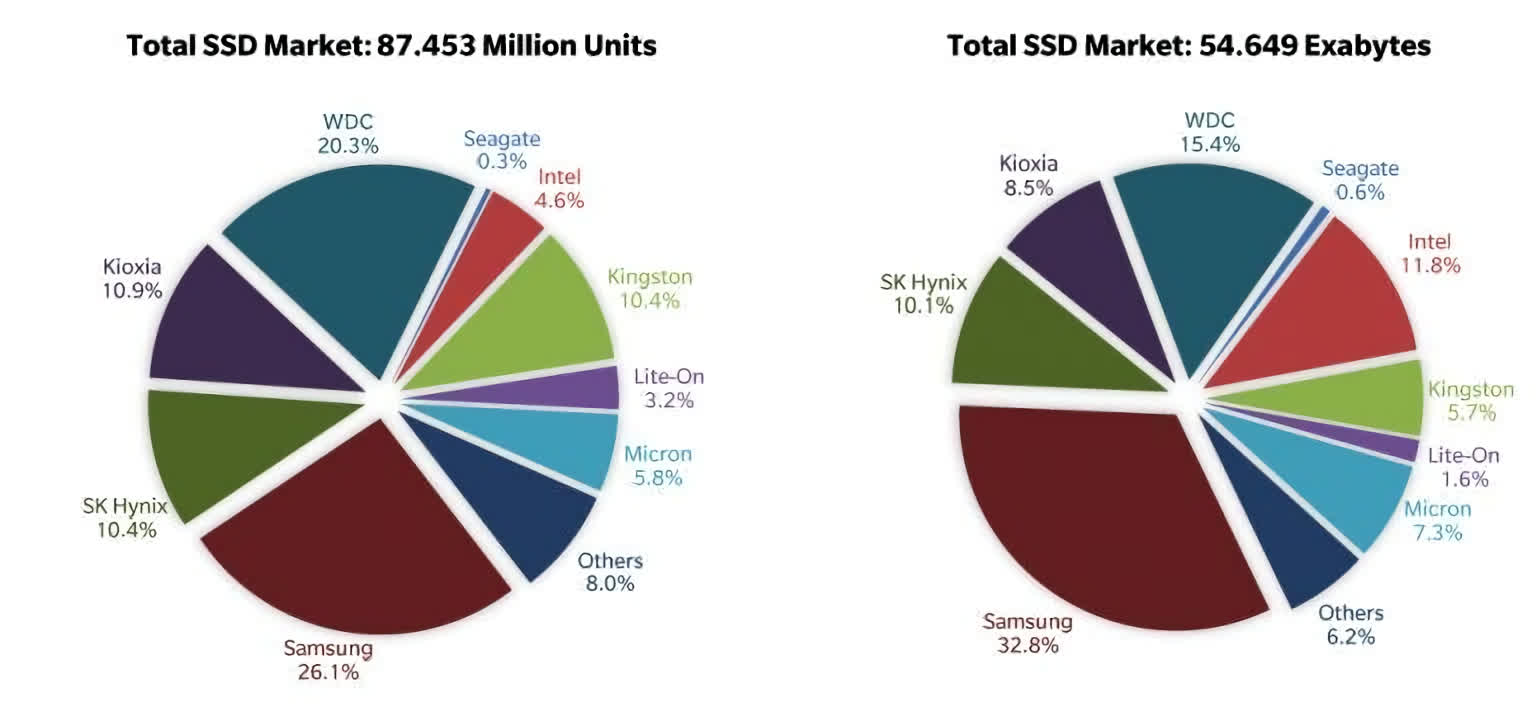Why it matters: Solid-state drive shipments surpassed those of traditional hard drives by a significant margin in 2020 but spinning media retained the crown in terms of overall capacity served. As pricing continues to plummet and capacity increases, we can expect to see the ratio become even more skewed.

According to data storage research and consulting firm TrendFocus (per Storage Newsletter), manufacturers shipped 333.12 million solid-state drives in 2020 – an increase of 20.8 percent year-over-year. Hard drive shipments, meanwhile, were down 18 percent annually to 259.81 million units.
Doing some quick math, we see that 28 percent more SSDs versus HDDs were shipped last year.
Related Reading: TechSpot's Top Storage Picks
Total SSD capacity was around 207.39 exabytes compared to 1,018.32 exabytes for hard drives. One exabyte equals a billion gigabytes.
Narrowing the scope to Q4 reveals that 87.453 million SSDs were shipped, mostly courtesy of Samsung and Western Digital. The next closest competitors - Kingston, Kioxia and SK Hynix - shipped half as many drives as Western Digital.

(Q4 2020 SSD shipments and capacity)
For years, I’ve been telling anyone who would listen that a solid-state drive is arguably the single best general performance upgrade you can perform on a computer. Early SSDs were prohibitively expensive but pricing has come way down in recent years, and even more so as of late due to continued NAND flash oversupply. These days, you can pick up a basic SATA III 240GB Kingston SSD for just $30.
https://www.techspot.com/news/88645-ssd-shipments-outpaced-hdds-2020-but-capacity-favors.html
